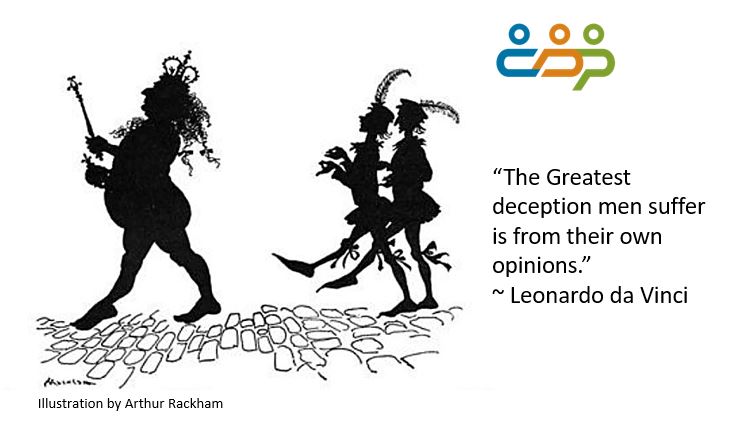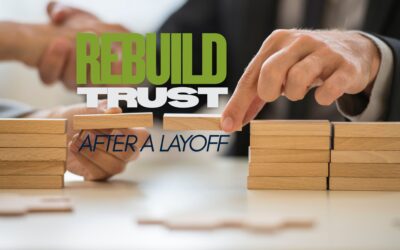Do you remember the story of the Emperor’s New Clothes by Hans Christian Andersen? A story about the self-important emperor who is duped into wearing “the most remarkable suit that was ever made” that was nonexistent? https://www.youtube.com/watch?v=t80UDdbV3Mk
While the king struts around, his subjects, including his queen remain silent, not daring to address the situation for fear of seeming stupid or less sophisticated than others — till a child says what’s on everyone else’s mind: “The emperor has no clothes!”
That just may be the experience of employees today, working for companies that talk a good game about career development and progress. Should we step back and consider, is it time for employees to step forward and bravely declare that the emperor has no clothes? Fact is, many organizations no longer offer career development. Is it possible that the whole notion of “careers” as we used to know them is dead or soon will be with the new digital transformation that is happening rapidly all around us?
Careers are a significant period of a person’s life. Are we as employer’s providing ample opportunities for progress in managing learning, work, leisure, and transitions in order to help our employee move toward a more determined and satisfying future? Most would argue that tenure and progress are increasingly absent from the experience of many employees.
Today’s business landscape is wildly different than that of the past. Organizations are flatter. Middle levels of management have been pruned. Baby boomers are working longer. A huge portion of the workforce considers itself “contingent” in the gig economy. Career paths are becoming more transient in an effort to adjust to moving into a more agile workplace. Movement can be expensive. Artificial and augmented intelligence puts the future of many careers in question. All of this means that the old pictures and expectations of career development and progression — that predictable climb up the corporate ladder – may no longer be valid.
Organizations and people that clearly lean into this reality will find themselves at an advantage over those who continue to parade around, touting and thinking of the promise of the traditional career and its development. We must begin to turn on the high beam and look at 2-3 years down the road with eyes wide open. Take time to invest in learning about upcoming digital transformation. A good resources is the MIT Newsletter download at https://go.technologyreview.com/newsletters
What truly matters to employees today and into the future? It is our job as leaders to help people no matter their stage in their careers to develop in whatever ways we can. Here are seven simple areas to give your employees an opportunity for career development:
- Agility. Help employees to develop resilience and “future proof” themselves by generating and pursuing a range of developmental options.
- Relationships. Cultivating connections among team members enriches life at work and beyond. And the resulting network supports employees’ performance and future possibilities and it is good for business.
- Competences. Offer the opportunity to gain new skills, capabilities, knowledge and the ability to contribute at greater levels. Teach them to track their contributions and quantify them as much as possible.
- Assurance. Create an environment rich in feedback, appreciation and affirmations – one that helps people deepen their sense of self-esteem.
- Luminosity. Identify opportunities to spotlight strengths, allow others to garner attention and let them shine. Create a culture that uses the word “thank you”.
- Variability. You can elevate interest and engagement at work by identifying new and appetizing challenges that others can’t wait to sink their teeth into. Routine can become more routine.
- Happiness. Find ways to enhance the level of satisfaction and joy within each employee’s current role. Celebrate together even with little things.
I recently heard Scott Klososky speak on succeeding during the digital transformation which he described as “a time in history” which he said is very complex. Fantastic presentation by the way.
Subscribe to his newsletter at www.tricorpstechnologies.com to help you get your high beams on so you are not waylaid in your company or in your career.
Love to hear your feedback
Sincerely
Travis Jones
 Travis has been an entrepreneur and business owner in Tulsa for over 30 years. He is a certified Life Options Retirement Coach and is certified to facilitate and deliver the Manager As Coach Learning Series (MACLS) through CPI. He is also a certified Career Coach and DiSC Certified . He previously served on the board of Career Partners International (CPI) an equity partner in CPI, offering a global reach with over 350 offices.
Travis has been an entrepreneur and business owner in Tulsa for over 30 years. He is a certified Life Options Retirement Coach and is certified to facilitate and deliver the Manager As Coach Learning Series (MACLS) through CPI. He is also a certified Career Coach and DiSC Certified . He previously served on the board of Career Partners International (CPI) an equity partner in CPI, offering a global reach with over 350 offices.




